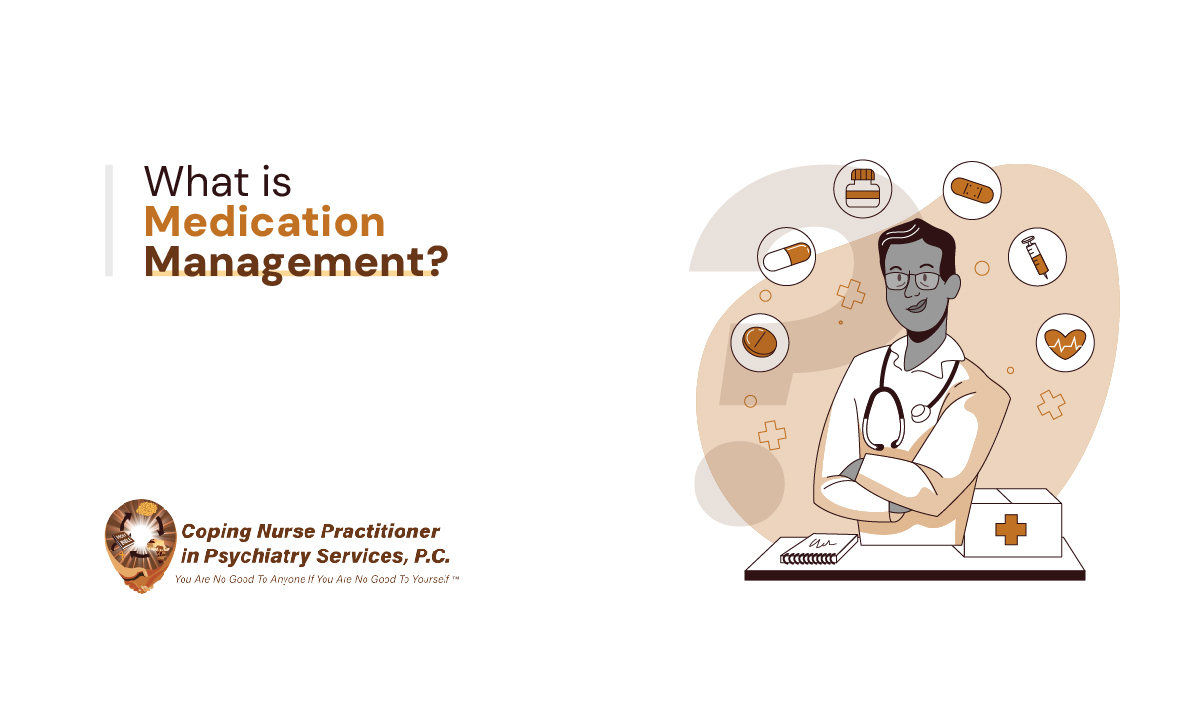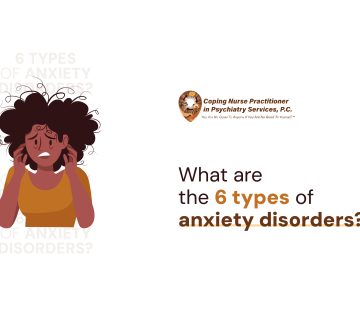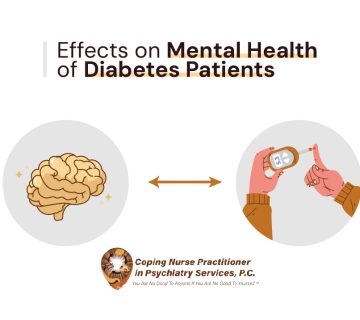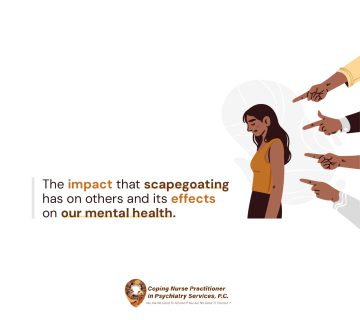For many people, medication is a lifeline, a bridge to health and wellness.
Whether managing a chronic condition or recovering from an acute illness, medications play a major part in healthcare — one that can influence the success of treatments, wellbeing, and long-term health of patients.
For patients and caregivers, understanding the process isn’t just helpful; it’s essential for making sense of modern medical care.
Below we’ll explain exactly what medication management is, why it’s so important, common issues, and practical tips to make sure that the medications you or your family take are managed safely with ease.
This guide is full of information and it’s meant to be easy to understand and follow for both new patients and caregivers assisting someone through the health process.
What is Med Management?
Medication management is the process of providing drugs that are appropriate, safe, and effective.
It is more than merely taking pills.
It involves a series of deliberate actions:
- Understanding why a medication is prescribed.
- The important dosing instructions.
- Side effects and interactions.
- How to store it properly and what to do if a dose is missed.
Importance of Medication Management
Proper management of medications is essential for several reasons, all of which support better health and wellness.
1. Adherence to Prescribed Treatments
The patient’s willingness to adhere to their prescribed treatment plans is strongly affected by medication management.
Not following through with your treatment regime consistently may cause uncontrolled chronic illnesses as well as acute conditions that could result in complications.
2. Avoiding Medication Errors
Understanding the what, why, and how of your medicines helps to minimize common but serious medication errors seen in both clinical settings and at home.
These errors could lead to hospitalization or in extreme cases, fatalities.
3. Tracking and Monitoring Health Progress
Medications usually act as markers of health conditions and their progress.
Proper tracking can give early warning signs if a treatment isn’t working as intended so that adjustments can be made as soon as possible.
The Essential Components of Medication Management
To achieve effective medication management, patients and caregivers should focus on a few components.
1. Medication Regimen Understanding
The first and most important step in managing medications is to understand the regimen.
In other words, you need to know what each drug does, why it was prescribed to you and what you should expect from taking it.
2. Proper Dosage and Timing
Missing a dose or taking the medication at an inappropriate time can reduce its potency – that is why consistency is so important.
Always take your medications exactly as prescribed and know what to do if you miss a dose.
3. Medication Handling and Storage
How and where you store your medications can make a difference in their potency and shelf life.
Factors such as heat, light and humidity can damage medication so proper storage is important.
4. Communication with Healthcare Providers
Feel free talking with your healthcare provider honestly about your medications.
Also tell them if there are some doubts or possible side effects that can occur.
Such barriers in medication management may lead to adjustment of the regimen by healthcare providers.
Obstacles in Medication Management
Despite the best intentions, managing medications can be fraught with difficulties.
1. Polypharmacy
This is the use of multiple medications by a patient especially when it is excessive or the consumption of more medications than are clinically warranted.
This results in adverse drug reactions, non-adherence with medicine schedules, and higher chances of developing health problems leading to hospital admission.
2. Side Effects and Interactions
All medications have possible side effects and some can interact with each other in ways that are harmful.
In addition, using prescription medications and illegal drugs and substances along with alcohol use can also cause drug interaction and danger to yourself and others.
A thorough understanding of these risks is an essential component of effective medication management.
3. Memory and Cognitive Issues
Forgetting to take a pill can happen to anyone but if it’s a chronic problem then solutions should be put in place.
This can be especially hard for older adults or people with cognitive impairments.
4. Financial Issues
Many patients fail to fill their prescriptions because of high medication costs. They take a lower dose than prescribed or skip doses in an effort to make their prescriptions last longer.
Financial factors need to be considered when devising the medication management plan.
Tips for Effective Medication Management
There are many ways that can be applied to manage medications more easily.
1. Use of Pill Organizers
For many patients, a pill organizer can be a simple but useful means to make sure that their medications are taken as prescribed.
It can also provide visual reminders, thereby reducing the likelihood of missed doses.
2. Setting Up Reminders
Whether you use an alarm clock, your phone’s app, or a family member’s help — setting up routine reminders to take medicine may greatly assist in managing your health problems.
3. Routine Medicine Checkups
Periodic reviews with your healthcare practitioner can confirm if your current medication regimen is still appropriate for you.
Changes in your health status might dictate changes in your medication management.
4. Seeking Help from Pharmacists
Pharmacists are experts in the field of medications.
As well as dispensing your prescription, they counsel patients on the safe and effective use of their medications.
Resources for Medication Management
There are fortunately many resources available to help in medication management.
1. Support Groups and Online Communities
Sometimes, those who have experienced this themselves offer the best help.
You might find a lot of assistance and practical suggestions if you join a support group or an online community.
2. Professional Caregiver Services
For patients with complicated medication needs, professional caregiver services can take the guesswork out of the medication management process and provide the needed level of support.
3. Medication Management Tools
With automatic pill dispensers and innovative packaging solutions, there are a lot of medication management solutions/tools available to make managing medications simpler, safer, and more convenient.
Bottom Line
Medication management is a shared responsibility for patients, caregivers, and healthcare providers.
When it comes to our health, medication management that works can determine whether a treatment succeeds or fails.
Only by understanding the intricacies of medication management do you get to benefit.
If you’re looking for personalized care and professional guidance in managing medications that our provider will prescribe for you, Dr. Vansiea can provide medication management services.
Dr. Vansiea makes sure that her patients understand and comprehend their medication regimen and also feel supported throughout the process. She educates patients on the benefits and risks of the prescribed medication. In addition, she orders labs before starting patients on any medications or adjusting any current ones. She has a holistic approach to treatment.
Contact us today at Coping Nurse Practitioner in Psychiatry Services and ease your medication management concerns.
FAQs
I’m looking for medication management services near me. How can Dr. Vansiea help?
Dr. Vansiea specializes in thorough medication management services. She looks at your medication regimen, gives you clinical recommendations and makes adjustments when necessary. She educates you on the benefits and risks of any medication that she is prescribing. The goal is that benefits must outweigh the risks before prescribing any medication. Her practice is patient-focused and goal directed. She listens and understands your needs.
What is meant by ‘med control’ in the context of medication management?
Med control refers to the regulation and monitoring of medication use to make sure medications are used safely.
What is strategic intervention in medication management?
Strategic intervention involves taking specific actions to tackle issues like:
- Not taking medication as prescribed.
- Dealing with complicated dosing schedules.
- Facing financial hardships.
What does a medication manager do?
A medication manager helps patients manage their medications.
This involves:
- Reviewing medication regimens.
- Providing patient education.
- Monitoring for efficiency and harmful effects.
- Coordinating care with other healthcare professionals.
- Ordering labs as needed
- Educating and preventing drug interactions of prescribed medication, over the counter and illegal street drugs and alcohol use
Medication management vs psychiatry – what’s the difference?
Psychiatry covers a wider scope involving psychotherapy and other non-medication treatments. Medication management mainly deals with the pharmacological aspect which is crucial for your mental health and wellness. It’s imperative to understand the benefits and risks of medications.




